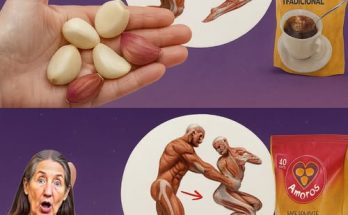A popular thyroid medication taken by 23 million Americans may be associated with bone loss, a startling new study finds.
Levothyroxine — marketed under brand names such as Synthroid — is the second most commonly prescribed medication among older adults in the US. It’s consumed by about 7% of the US population.
The drug addresses hypothyroidism, also known as an underactive thyroid, by replacing or providing more of a thyroid hormone naturally produced by the body.
The study authors, from Johns Hopkins Medicine, linked levothyroxine use to a greater loss of bone mass and bone density over six years — even in older adults with normal thyroid function.
The preliminary research compared the bone health of 81 levothyroxine users and 364 non-users, who were mostly in their early 70s.
“Our study suggests that even when following current guidelines, levothyroxine use appears to be associated with greater bone loss in older adults,” said Dr. Shadpour Demehri, co-senior study author and professor of radiology at Johns Hopkins.
For their part, the makers of Synthroid acknowledge that taking too much levothyroxine can lead to increased bone loss — especially in post-menopausal women.
The loss of bone mineral density and bone mass is called osteoporosis, a disease that affects an estimated 10 million Americans 50 and older.
Bones become weak and more likely to break. With osteoporosis, it can be difficult to move around and recover from broken bones. Severe fractures can lead to life-threatening complications.
Hypothyroidism can also lead to serious and potentially fatal complications if left untreated. Around 30 million Americans are believed to have the condition, which is often characterized by fatigue, weight gain and/or hair loss.The study authors are unsure why some patients initially received prescriptions for levothyroxine — and why they are still taking it.
“Data indicates that a significant proportion of thyroid hormone prescriptions may be given to older adults without hypothyroidism, raising concerns about subsequent relative excess of thyroid hormone even when treatment is targeted to reference range goals,” said Dr. Elena Ghotbi, the study’s lead author and a postdoctoral research fellow at Johns Hopkins.
The findings will be presented next week at the annual meeting of the Radiological Society of North America.
In the meantime, adults taking levothyroxine should discuss the drug with their doctor, weighing positives of the treatment against possible bone loss and other potential adverse effects.






